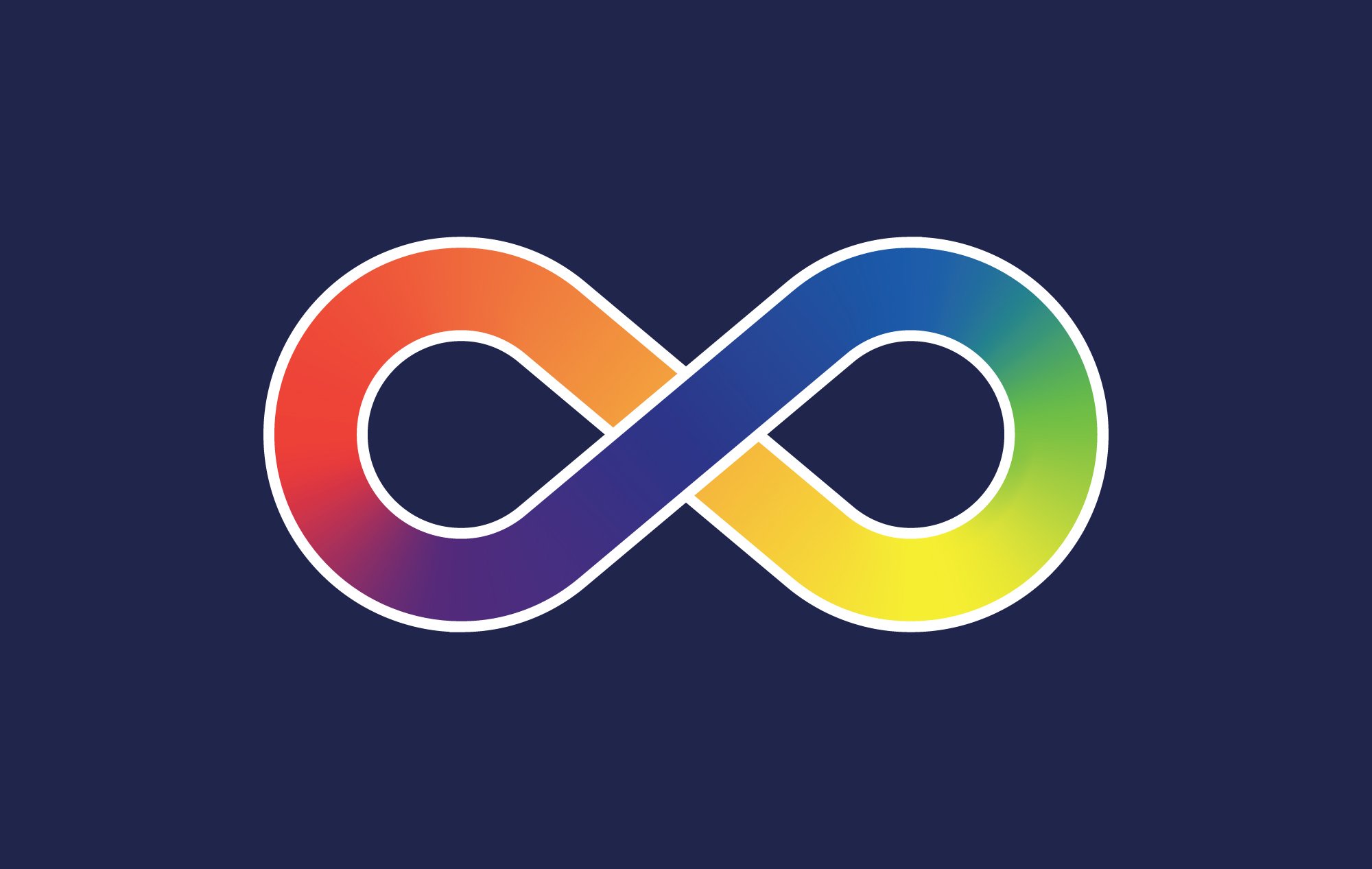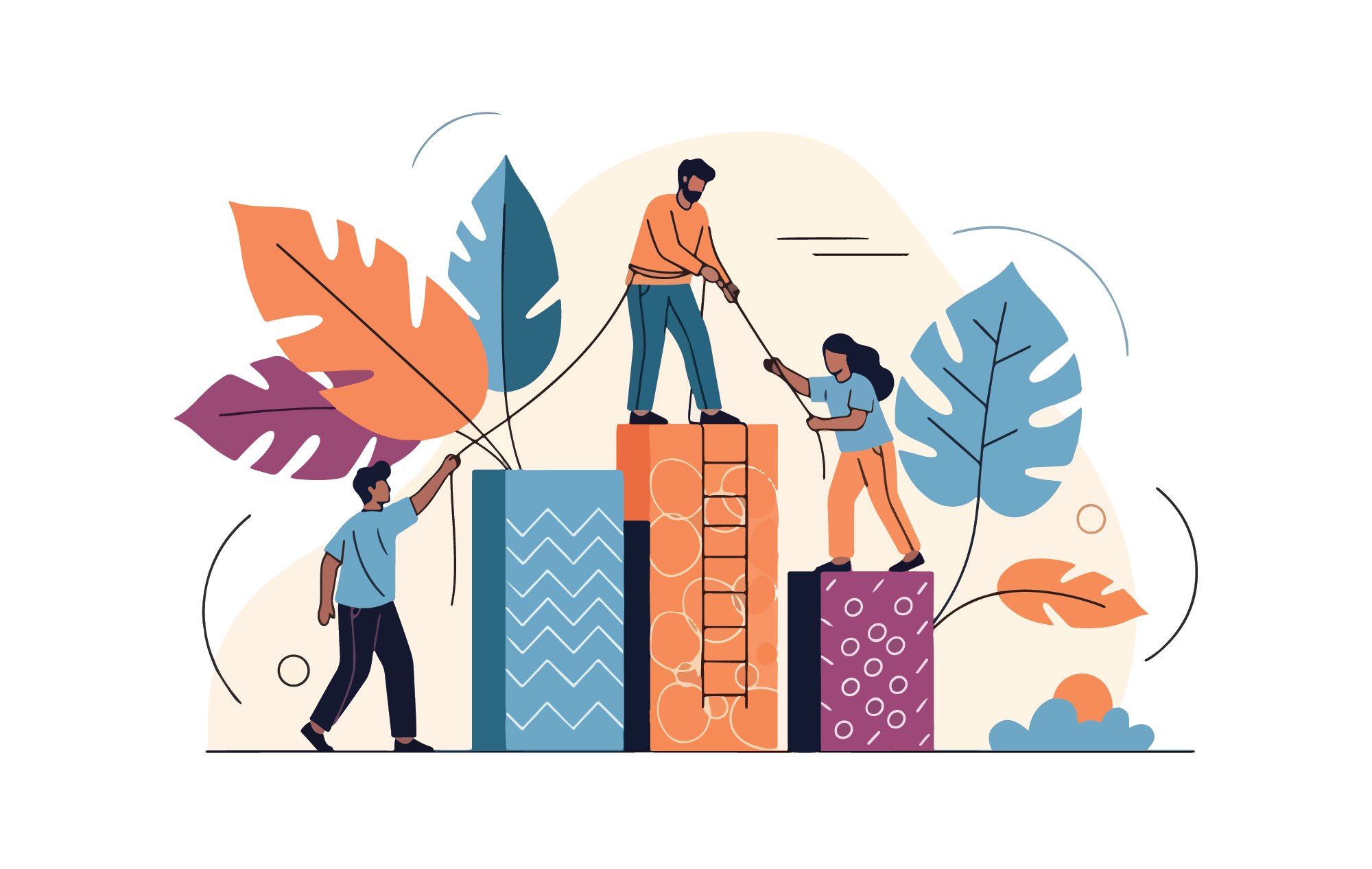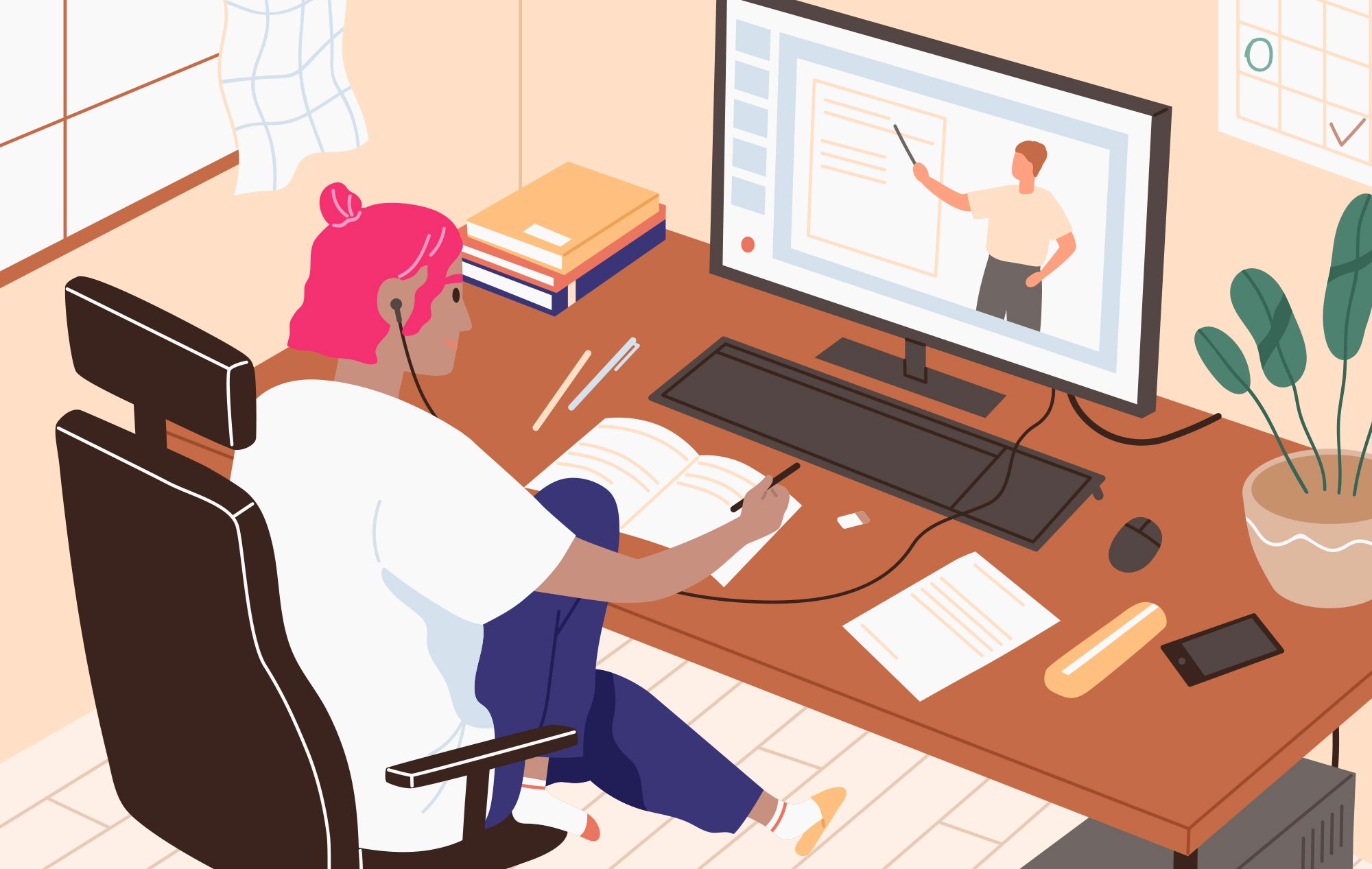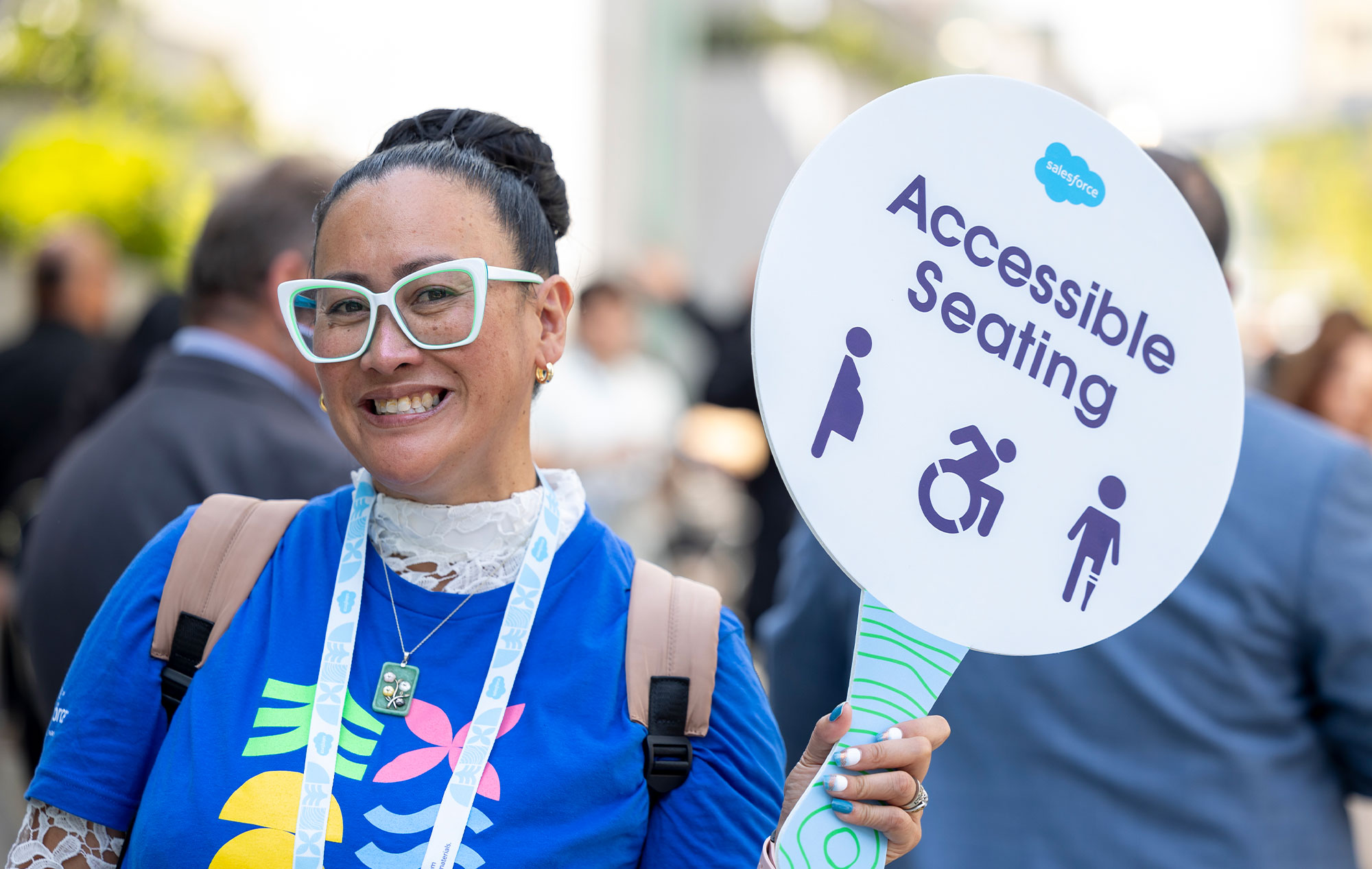First celebrated on June 18, 2005, Autistic Pride Day (APD) champions the diversity and uniqueness of autistic people and their contributions to society. APD utilizes the imagery of the rainbow infinity sign to represent the limitless variations and possibilities found in the neurodivergent community.
APD is intended to promote acceptance and inclusion of autistic people, and to challenge the stigmas and discrimination they still face .
To raise awareness for professionals with disabilities , Kurt Iobst, an accessibility evangelist and Senior Success Manager at Salesforce, sat down with InclusionHub to share his personal experiences with autism. He also offered advice to neurodivergent professionals and their managers looking to build more inclusive workplaces .
A Typical Neuroatypical Life
Now 46 years old, Iobst was diagnosed with attention-deficit disorder (ADD) in the 1980s. A since outdated term, ADD was replaced by medical professionals in the 1990s with a more precise one: attention-deficit/hyperactivity disorder (ADHD).
A neurodevelopmental disorder typically diagnosed in childhood, ADHD is usually accompanied by difficulty focusing, controlling impulsive behaviors, and being “overly” active.
Iobst was soon medicated, with the dosage increasing every couple of months. However, his medications were discontinued when he became a teenager. He recalls his doctor telling his parents, “Listen, we really don't see a whole lot happening. He's just a hyperactive child. He'll grow out of it.” Not an uncommon feature of the typical neuroatypical story.
“As we all know,” Iobst says, “no one grows out of ADHD. It wasn't until my mid 30s, when a friend of mine had reacted to something that I'd said with, ‘That's because you're autistic.’ What are you talking about, I thought.”
Diagnosed as autistic herself, this friend then shared some literature with him about neurodiversity, an umbrella term that refers to people who orient differently in the world, compared to people considered “neurotypical.” This is due largely to neurological divergence and includes ADHD, autism, and other learning disabilities .
It’s worth noting that many people who have been diagnosed as autistic, ADHD, etc., push back against this so-called “medical model,” preferring instead not to view neurodivergence as something to prevent, treat, or cure. Instead, they advocate for respecting the preferences, needs, and strengths of neurodivergent people, and providing them with the support and accommodations they need to thrive.
Getting a Diagnosis
As Iobst continued reading about autism, “the more bells went off,” he says. “But I worked for a startup at the time and they didn't have health insurance, so no diagnosis was going to happen.”
He held strong suspicions he was autistic, and his intuitions were reinforced when the coronavirus pandemic hit in 2020 and his usual routines for coping were entirely undermined.
“I've always set up things for myself to be successful,” he continues, “but during the pandemic, most of those things got thrown out the window. Basic things like going to the grocery store ended in panic attacks or tears…because the way I set myself up to be successful changed so dramatically. They put arrows on the floors at the grocery store and you had to follow the arrows and you had to put your groceries in a certain way. You couldn't get too close, and all the things that I had done repeatedly to be able to thrive changed overnight. I couldn't function.”
He had joined cloud-based customer relationship management software provider Salesforce in 2019, but it wasn’t until he had these devastating episodes during the pandemic that he sought out a formal diagnosis.
“Thankfully, I was at Salesforce and we have great health insurance,” he says.
It didn’t take long for a medical team to deliver his diagnosis.
“I got the diagnosis knocked out of the park: autistic,” Iobst explains. “They actually stopped mid-diagnosis and said, ‘You're good. We've got this. You don't need to continue.’ So it's kind of funny. They were like, ‘You're checking all the boxes, so you can just stop.’”
Co-founder and President of the Neurodiversity subgroup of Abilityforce, one of Salesforce’s equality groups consisting of neurodivergent professionals and their allies dedicated to advancing accessibility in the workplace, he’s found his story is quite common among neuroatypical colleagues.
“I had a very typical autistic life growing up that you hear about from people that are late diagnosed,” he says. “I made friends easily, but couldn't keep them, was always viewed as the weird kid, and did things that kind of spooked people. They treated you differently. These are things that I hear from people all the time as I work.”
Iobst frequently gives presentations and finds community among other professionals with disabilities who feel they “didn't quite fit in or didn't quite feel there was a place for them in society,” he observes. “Until they either self-diagnosed or received their diagnosis and joined the neurodivergent community, they really did feel like an alien on Earth. That's kind of what I always felt like. I was the square peg in the round hole, until I had found my community, and now we're all flourishing.”
He’s become a fierce advocate for neurodivergent professionals. The Neurodiversity subgroup of Abilityforce currently has upward of a thousand members, and is growing.
“Once I went through the process, I decided that if I was to get diagnosed as autistic, I was going to just tell my story repeatedly,” he says. “I was going to be as open as possible. I planned to completely come out, and once you’re out as autistic, there's no going back.”
3 Levels of Accommodations for Autistic Professionals
When asked which accommodations he’s found the most helpful throughout his career, he outlined three levels of support workplaces can provide autistic professionals.
Top Level
The top level includes accommodations that tend to cost the company money or require a doctor’s note. For example, Salesorce equips him with a pair of noise-canceling headphones because he has an auditory processing disorder that makes noisy spaces maddeningly disruptive to his work (even when working remotely ).
“I can’t function without them,” he explains. “I have a home office, and my partner is right there [gesturing to somebody behind him]. She started working remotely during the pandemic and now works from home three days a week. If she’s talking and I don’t have my headphones on, no work is getting done.”
Mid Level
Accommodations at the mid level may not require quite as much disclosure.
He points to Salesforce’s neurodivergent coaching program as an example. These one-on-one coaches develop “coping strategies to help you with daily work life,” Iobst explains. “At no point do they teach you how to do your job, but what they do is work on scheduling, work on ways to relieve anxiety during the day. They work on things that are pretty common in the neurotypical world that seem to evade the neurodivergent.”
He also considers software with scheduling tools and other assistive technology mid-level accommodations that have proven particularly beneficial to autistic professionals.
Base Level
This lower level is what Iobst feels is most often overlooked by neurodivergent professionals, and centers around one skill, in particular: self-advocating.
It’s about communicating your needs with your manager, he says, telling them which conditions you work the best under, such as being provided an agenda before a meeting.
“Those kinds of accommodations are the most important because they’re the easiest to get,” he argues, “but they’re often the most overlooked because the neurodivergent community isn’t great about self-advocating.”
Make Self-Advocacy a Priority
Self-advocacy should be a priority for first-career autistic professionals, Iobst explains.
“I encourage people to self-advocate for as much as they are comfortable,” he says. “I understand that not every workplace is as equitable, open, and transparent as Salesforce. I strongly encourage everyone to self-advocate, because if you can’t do that, if you can’t ask for what you need, you’re never really going to truly be yourself at work.”
He cautions early-career autistic professionals against resigning themselves to masking throughout their entire careers. Neurodivergent masking involves camouflaging or moderating one’s neurodivergent traits or conditions, to adapt to the norms of the workplace or society.
And it’s emotionally exhausting.
“That just adds a layer of burden,” Iobst explains. “You know that lead vest we wear at the dentist when taking an X-ray? It’s like wearing five or 10 of those while trying to exist, while trying to do our best work.”
The constant restriction autistic professionals experience, such as “having to pretend that something is funny when we don’t understand,” is psychologically “draining,” he says.
Self-advocating helps to reduce the weariness that accumulates over time. And that’s good for both autistic professionals and their teams .
“Every bit of reduction in masking is a benefit,” he continues, “not only to yourself but your employer, because you’re going to do better work. The less you have to do that, the better.”
To aid neurodivergent employees who may feel anxious about unmasking or opening up to peers about their diagnosis, Iobst recommends creating an abbreviated guide on yourself, a document you can share with team members to help the working environment be more accessible to you, more conducive to your working style.
“I always encourage people to make a document that’s kind of a manual on yourself that you can present to your team or your manager,” he says. “It can be something as simple as the ways that I work best, my communication style, and my most focused times of the day.”
One of the great things about this approach is that it doesn’t necessarily require autistic professionals to divulge their disability status or diagnosis. When you greet new team members, you can give it to them as a handy reminder for how to best work with you. And leave it at that.
“At no time do you have to come out and say, ‘I’m autistic. I have ADHD,’” he explains. “You can just say these are the ways you work best, because everybody has their own working style. By having that, you can still self-advocate. You don’t always have to reveal a diagnosis.”
This is where managers can play a key role in helping chart the path forward toward greater acceptance, and empowerment.
The Importance of Managerial Support in Building an Inclusive Workspace
Managers are entrusted with setting the tone and culture of a team . The better they can model psychological safety and authentically champion inclusion , the more other teammates will follow suit. When managers demonstrate their compassion and openness, neurodivergent employees feel they can ask for the accommodations they need to thrive in the workplace.
That’s what encouraged Iobst to come out about his autism diagnosis.
“While I was going through this process, I actually spoke with my manager at the time,” he recounts. “I told him in tears that I apologized for hiding my true self for so long. I started to unmask for him, and I started pointing out things that I’d hidden in the past.”
These challenges included maintaining eye contact, his auditory condition, and the awkwardness of social interactions. When he revealed this struggle, his manager said something to him that brought him to tears: “Well, I’m not going to treat you any differently, unless you want me to.”
“And that really made me break down,” Iobst says, “because it was such a beautiful statement. He trusted me. He understood how I worked. He knew a little bit about me. He left it up to me to decide if he should treat me any differently. And I agreed with him. I said, ‘I don’t want to be treated any differently than you normally do.’ This manager was very open, giving, and caring. I wish everyone were like this manager.”
Salesforce is a founding partner of InclusionHub , a comprehensive online resource directory and content hub dedicated to helping businesses prioritize accessibility and inclusion. Explore InclusionHub’s Resource Directory to learn more about tools and solutions available to your organization to better support neurodivergent professionals.






Leave a Comment